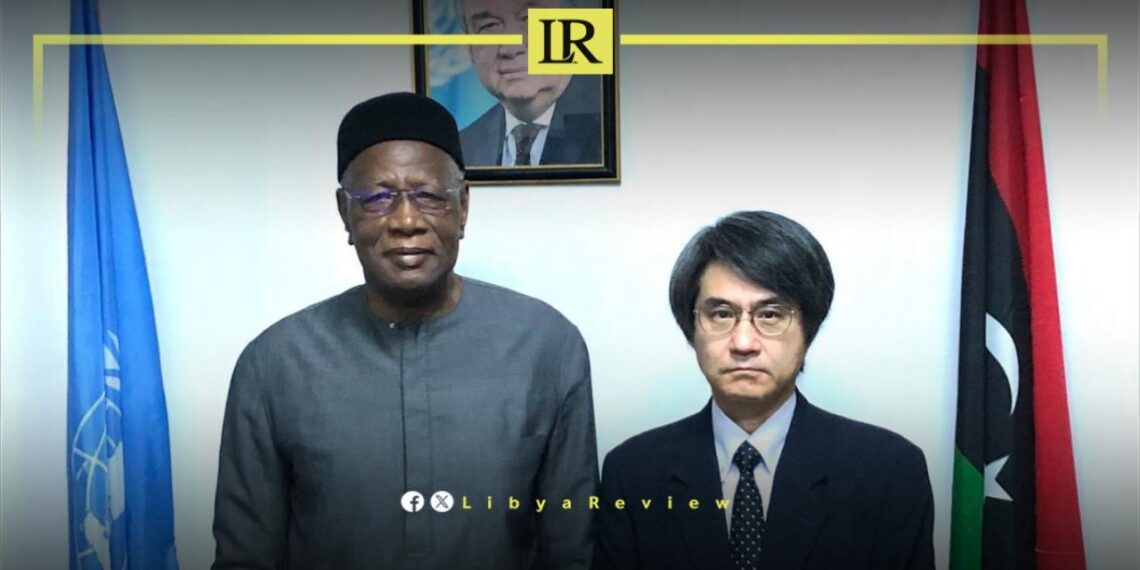Japanese Ambassador to Libya, Shimmura Izuru, discussed the latest developments surrounding the political process in Libya with the Special Representative of the UN Secretary-General, Abdoulaye Bathily.
In a statement, the Japanese Embassy in Libya highlighted the significance of a coordinated approach towards Libyan-led and Libyan-owned political process, supported by the international community in a concerted manner.
The embassy stressed Japan’s strong support for the leadership of Bathily’s leadership in this process, mandated by relevant UNSC Resolutions.
In February, Japan pledged $1.6 million to assist UNICEF’s flood relief efforts in Eastern Libya, aiming to improve health, water, sanitation, and child protection services for communities affected by recent floods.
This donation coincided with the reopening of the Japanese Embassy in Libya, signaling a renewed commitment to support the needs of children and families impacted by the flooding. With this funding, the initiative plans to assist 165,000 people, including 75,000 children, by providing essential healthcare, access to clean water and sanitation, and child protection services.
This contribution follows Japan’s initial donation of $1 million in October, aimed at supporting the immediate relief operations for flood-affected areas in Eastern Libya, including the severely hit city of Derna.
In another context, Bathily highlighted Libya’s abundant natural resources and human potential as keys to transforming the nation into a major economic force in the region. Bathily emphasised that peace and stability are contingent upon the establishment of legitimate institutions.
“Throughout my visits to numerous cities, engaging with a variety of citizens and cultural groups, I’ve discerned a clear desire among the Libyan people to resolve this crisis and achieve stability. The responsibility for the current division in the country squarely lies with its political leaders,” Bathily stated.
He continued, “Given that electoral laws are in place, the time is now ripe for a political settlement and the formation of a unified government to lead the country until elections are completed. I urge you, as Amazigh municipal leaders, to engage with national leaders to find a solution to the Libyan crisis.”
Libya has been in chaos since a NATO-backed uprising toppled longtime leader Muammar Gaddafi in 2011. The county has for years been split between rival administrations.


